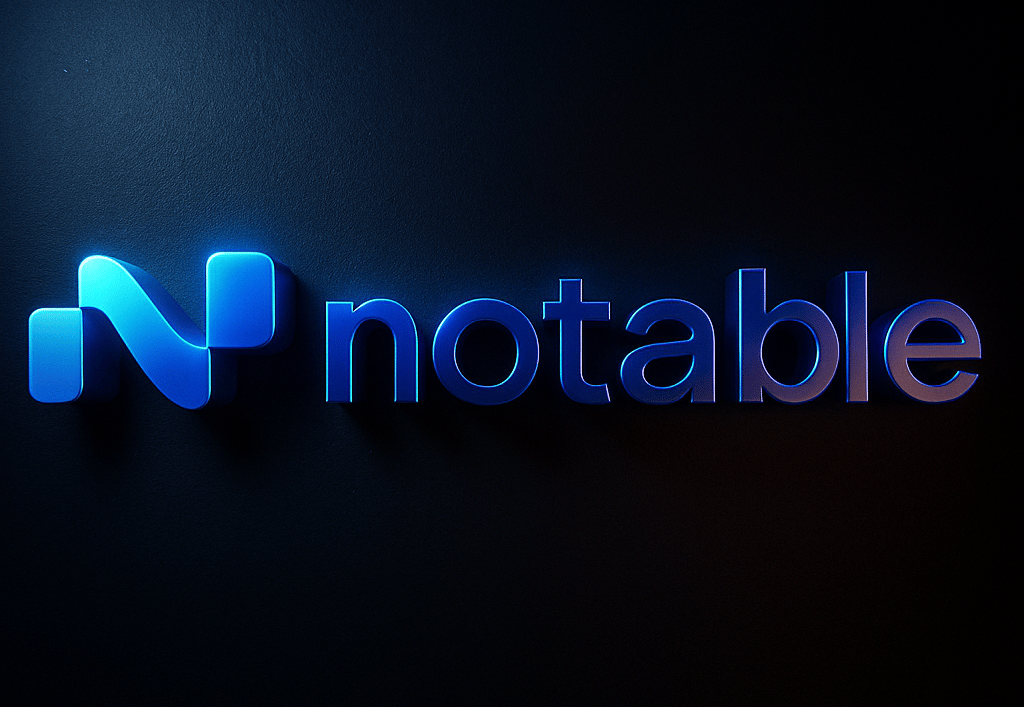Notable Launches Flow AI to Boost Healthcare Workflow Automation
Notable launched Flow AI, a conversational assistant integrated into its low-code Flow Builder, enabling healthcare organizations to easily design, optimize, and deploy AI workflows that reduce administrative burdens and enhance operational efficiency.
EDUCATIONTECH INFRASTRUCTURELLMARTIFICIAL INTELLIGENCEAUTOMATIONTECHNOLOGYHEALTH CAREDIGITAL AUTOMATION
Eric Sanders
10/9/20254 min read


How Notable’s Flow AI is Poised to Transform Healthcare Workflows
Healthcare is drowning in paperwork. Physicians, nurses, and administrative staff spend an exhausting amount of time on repetitive, non-clinical tasks that drain energy away from what truly matters: patient care. Yet, despite the availability of countless software solutions, administrative inefficiencies persist — often because the tools themselves are clunky, complicated, or poorly integrated.
Notable’s new offering, Flow AI, directly confronts this challenge by marrying conversational AI with low-code workflow automation designed specifically for the healthcare environment. This innovation is not just another tech upgrade; it’s a potential game-changer that could significantly reduce the administrative burden in healthcare organizations while streamlining operations in a way that’s accessible for all users.
Healthcare Desperately Needs Smarter Workflow Automation
To appreciate the significance of Flow AI, it helps to understand the magnitude of the problem it tackles. Studies consistently reveal that medical staff spend up to half their time on paperwork, data entry, and other administrative duties. These tasks contribute to burnout, errors, and inefficiency. Often, the tools intended to solve this only add to the complexity because they require specialized knowledge to configure and operate.
Many institutions struggle because:
- Existing automation tools are too technical for non-IT staff to modify.
- Workflows are rigid and don’t adapt well to the dynamic nature of healthcare environments.
- Communication between systems and departments remains fragmented.
Integrating a conversational assistant into workflow design offers a fresh approach — creating an interface that can evolve intuitively and be easily optimized without extensive coding expertise.
A Conversational Assistant Tailored for Healthcare
Notable’s Flow AI is embedded within its low-code Flow Builder platform, which already allows healthcare teams to craft custom workflows. The addition of conversational AI means users can design, test, and refine workflows via natural language commands and dialogues rather than wrestling with code and complex interfaces.
This is important because:
- It empowers clinical and administrative staff who understand the workflow needs best to take charge.
- The lower learning curve speeds up deployment and enables continuous iteration as processes change.
- Conversational AI can guide users through workflow creation and optimization, catching errors early and suggesting improvements on the fly.
As stated by Notable, Flow AI “enables healthcare organizations to easily design, optimize, and deploy AI workflows that reduce administrative burdens and enhance operational efficiency.”
The emphasis on ease and effectiveness is vital — rather than replacing humans, Flow AI serves as a collaborative assistant that augments human judgment and expertise.
Bringing AI into the workflow automation space is nothing new, but few solutions are purpose-built with healthcare’s unique demands in mind. The combination of conversational AI with a low-code environment means teams can build solutions that are:
- Customizable: Reflecting the exact steps, approvals, and documentation unique to each facility.
- Agile: Adaptable to sudden regulatory changes or shifting healthcare priorities.
- Accessible: Usable by staff without deep technical backgrounds, reducing reliance on IT bottlenecks.
Consider a hospital overwhelmed with manual patient intake forms, prior authorizations, or billing processes. With Flow AI, staff can automate these repetitive tasks while using conversational prompts to tweak the workflows easily, ensuring that exceptions or edge cases are handled without needing engineers on speed dial.
As healthcare organizations seek ways to recover from pandemic-driven burnout and resource constraints, solutions like Flow AI offer a path to smarter operational resilience.
Healthcare Leaders Can Learn From Notable’s Approach
Notable’s launch of Flow AI underscores several important lessons about digital transformation in healthcare:
- Relationships, not just tech, are critical: The goal isn’t flashy AI for AI’s sake but enabling better collaboration between clinical and administrative teams.
- User-centric design wins: Making AI approachable through conversational interfaces increases adoption and long-term success.
- Flexibility matters: Low-code platforms powered by conversational AI support continuous improvement—essential in an industry where policies and priorities shift rapidly.
- Human oversight remains crucial: Automation is an assistant, not a replacement, ensuring accuracy while preserving human judgment.
For organizations aiming to modernize, the takeaway is clear: focus on solutions that empower staff at all levels to create and control their own workflows. The future of healthcare depends less on top-down mandates and more on agile, user-friendly tools that adapt as frontline needs evolve.
Embracing Technology Without Losing Humanity
In the quest to improve healthcare through technology, it’s easy to get swept up in the promise of automation and AI. But the true benchmark of success lies in how these tools impact people — both patients and caregivers.
Flow AI’s design philosophy reflects a refreshing balance: it aims not to replace human interaction but to enhance the underlying systems so that caregivers have more time and bandwidth for meaningful patient engagement.
If healthcare’s administrative chaos is a storm, Flow AI offers a better compass and streamlined sails to navigate it — but the crew still steers the ship.
Could Conversational AI Be the Key to Restoring Joy in Medicine?
When you think about the daily reality in hospitals and clinics—the stress, the hours spent grappling with forms and systems—what if the secret to restoring joy and efficiency lies not in more software, but in smarter, more human-centered tools? How might the role of caregivers change if administrative headaches were greatly diminished?
How soon could your organization start designing and deploying workflows with an AI assistant that listens, learns, and helps refine processes as naturally as having a conversation?
The promise of Flow AI is more than automation; it’s about reclaiming time and focus for those who matter most in healthcare—people. Isn’t that a future worth pursuing?
Efficiency
Transform your workflows and reclaim your time.
Contact Us
Need A Custom Solutions? Lets connect!
eric.sanders@thedigiadvantagepro.com
772-228-1085
© 2025. All rights reserved.
